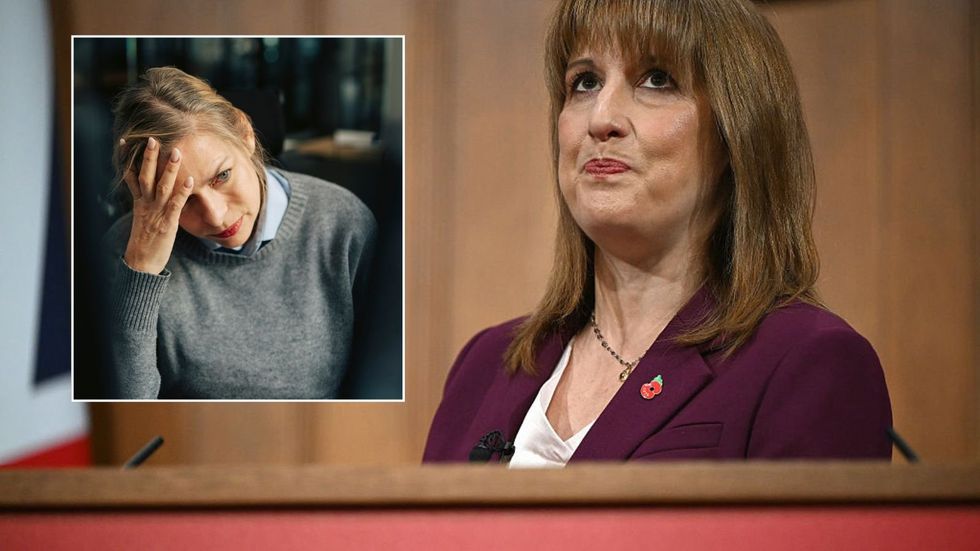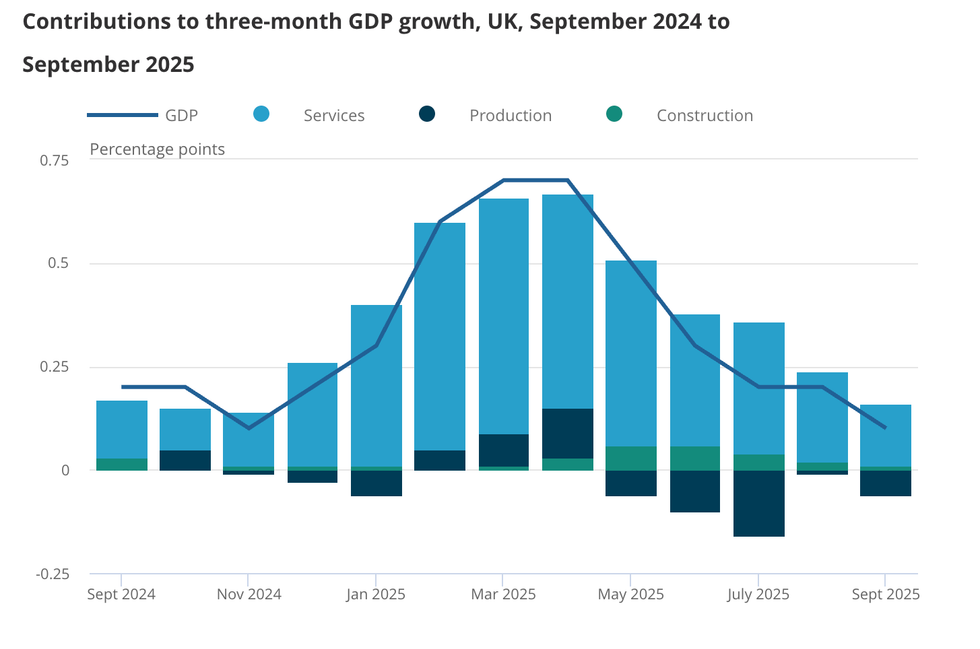The economy grew at a slower rate than expected in the three months to September, according to the Office for National Statistics (ONS) figures.
The news will come as a heavy blow to the Chancellor ahead of the November 26 budget.
They also confirmed in a separate figure that GDP fell by 0.1 per cent in September, indicating the economy shrank last month.
Along with the figures, Liz McKeown, the ONS’ director of economic statistics, said: “Growth slowed further in the third quarter of the year with both services and construction weaker than in the previous period.
“There was also a further contraction in production.”
She added that there was a “particularly marked fall in car production in September, reflecting the impact of a cyber incident, as well as a decline in the often-erratic pharmaceutical industry”.
Growth remains the government’s top priority.
Headline growth, once adjusted for population increases, shows that the economy effectively flatlined over the summer.

Growth was slower than expected
|
GETTY
While the Jaguar Land Rover shutdown dented September’s GDP, underlying performance was already subdued.
Economists had predicted growth of 0.2 per cent for the quarter, with expectations that September would show zero growth.
The hope within Downing Street had been that stronger economic growth can help increase tax revenues and support spending plans.
A strong start to 2025 was soon followed by the introduction of widespread global tariffs by the White House, and budget measures that placed £25billion of taxes on employers.
Economists have since blamed each for driving up inflation and undermining private sector investment and jobs.
Weaker-than-expected growth figures are likely to strengthen calls for the Bank of England to cut interest rates at its December meeting.
New data this week showed unemployment rising to 5 per cent, up from 4.1 per cent when Labour took office pledging to prioritise economic growth.
Since then, the Government’s approach has focused on managing the public finances.
 Contributions to three-month GDP growth, UK, September 2024 to September 2025 | ONS
Contributions to three-month GDP growth, UK, September 2024 to September 2025 | ONS
But business groups have criticised the Chancellor for damaging private sector investment and job creation through increases to the minimum wage and employer national insurance.
The Bank has echoed concerns about hiring and retention, while rising employment costs appear to have fed through to consumers, contributing to persistently high inflation, which is now forecast to ease in the months ahead.
Rachel Reeves has pointed to external pressures, including Brexit and the US trade war, as key factors weighing on the economy and contributing to the fiscal gap she says was inherited from the previous Conservative Government.
THIS IS A BREAKING NEWS STORY… MORE TO FOLLOW
